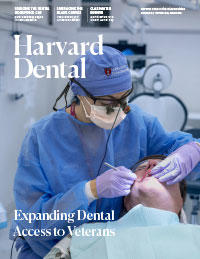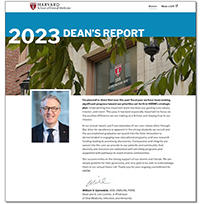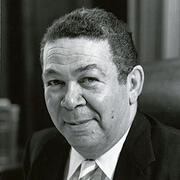
Drs. Siobhian M. B. Sprott, and Shelly D. Taylor were recently awarded the Joseph L. Henry Oral Health Fellowship in Minority Health Policy for the 2020-2021 academic year. The Joseph L. Henry Oral Health Fellowship in Minority Health Policy, awarded each academic year, is an academic degree-granting program with the goal of preparing the next generation of leaders in minority health, health policy, and oral epidemiology. The program is named after Harvard School of Dental Medicine’s first African American full professor, Joseph L. Henry who also served as the School’s interim dean from 1990-1991. The fellowship aims to improve the capacity of health care and to address the health needs of vulnerable populations.
Siobhian M. B. Sprott, DDS, MPA, is a board-eligible pediatric dentist. Prior to accepting the Fellowship, she served as chief resident in pediatric dentistry at Tufts University School of Dental Medicine in Boston. Sprott previously worked as a general dentist in Washington, D.C., Maryland, and Virginia for 10 years. She received her dental degree from Howard University College of Dentistry in 2008 and completed a General Practice Residency at Howard University Hospital in 2009. Sprott is driven by a desire to understand oral health care delivery from an organizational management perspective that engages the community and is committed to working with underserved pediatric populations.
Shelly D. Taylor, DMD, is the dental director of Upham’s Corner Health Center in Dorchester, Massachusetts. Prior to moving to Massachusetts, Taylor served as the dental director at Broward Community and Family Health Centers (BCFHC) in South Florida. Taylor is committed to public health and serving vulnerable populations. She is interested in designing programs that will help integrate medical and dental care, with the ultimate goal of improving patient outcomes and delivery of care. Taylor earned her dental degree from the University of Florida College of Dentistry in 2015, as well as an Advanced Education in General Dentistry Certificate from the University of Tennessee College of Dentistry in 2016.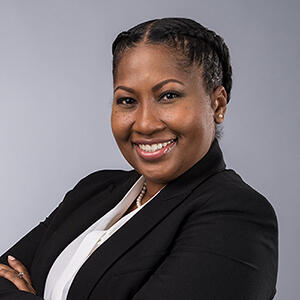
Siobhian Sprott: To be a part of this fellowship is to understand the man that Dr. Joseph L. Henry was and the legacy he left behind. He was a son of his community and served it as he lived. His commitment extended to the development of future oral health leaders within minority populations. The Fellowship represents a commitment to serve underserved populations through multiple avenues in oral health. The program, coupled with its association with the Harvard T. H. Chan School of Public Health, is dedicated to cultivating an enriched educational experience that will groom this country’s future leaders in oral health. This is a responsibility that I believe reflects my own personal commitment to serving the underserved and is the primary reason why I applied for this fellowship.
Shelly Taylor: As a dental director in a public health setting, I experienced first-hand how access to care is difficult for vulnerable populations. Many of my patients previously sought out dental care, but were unable to afford treatment or did not know how to navigate the health care system. Providing access to care to these populations will greatly reduce the oral health burden in America. The Fellowship has enhanced my knowledge and leadership skills to help underserved populations gain access to dental care. The oral health of a patient is an important factor in their overall systemic health, with many systemic health conditions having oral manifestations. The close-knit relationships between physicians and dentists within this fellowship sparked my interest. I wanted to be involved with an interdisciplinary team of forward-thinking individuals who wish to help patients receive optimal and comprehensive care. The Fellowship is providing me with the tools to bridge the gap between medical and dental providers.
What is unique about this opportunity for dentists who are already established in their careers?
Sprott: As someone who returned to school after establishing myself as a clinician, one of the most unique aspects of the fellowship is that we get to explore various career tracts within our field – both traditional and non-traditional. This is most apparent through our practicum projects, where we have the opportunity to pursue policy projects that would ordinarily be outside of our professional subject matter. The Fellowship also gives us access to some of the greatest minds within the fields of public health, public policy and government, medicine, dentistry, and research to name a few. This expands our professional network and increases the impact we can have in our work. For the average practicing dentist, who may operate in a clinical silo, these are opportunities many would not be presented with throughout the span of their careers.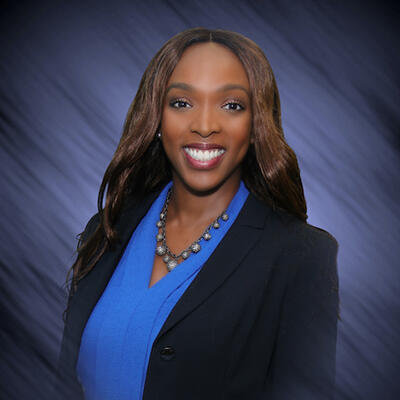
What have you found most challenging or rewarding about the program?
Sprott: One of the most challenging aspects about the Fellowship has been learning how to pivot from a clinical lens to a policy lens and use it to evaluate various systems. We are fortunate to be seated in rooms with both clinicians and non-clinicians and can learn from each other in an environment that stimulates personal growth. The most rewarding part of this Fellowship has been our current year’s cohort. We are fortunate to be a part of the Commonwealth Fund Fellowship program and this year we have a dynamic group of eight women who come from different professional backgrounds and lived experiences, but whose goals align with our own. We are in constant communication and we consistently enrich each other through our daily interactions.
Taylor: My personal growth and interactions with Fellowship mentors has been the most rewarding aspect of this program. Taking this year away from full-time work has allowed me to focus on the issues that I am passionate about. This Fellowship has provided me with opportunities to collaborate with experienced faculty and national organizations to help pursue my public health goals.
What role does this Fellowship play in addressing health care disparities for vulnerable populations?
Sprott: The Fellowship focuses on developing oral health leaders from underrepresented groups in medicine who want to become changemakers in minority communities. It encourages fellows to become policy makers and to work within the public health realm. The culture of the program is one of a safe space where we can exchange ideas and have conversations that may not always be welcomed in broader circles. We tackle hard issues like racism and work through the impacts of the social determinants of health on health outcomes. We are challenged to think about our own biases and what that may look like as a clinician and a public health leader. Ultimately, I think this Fellowship, and others like it, challenge the way we think— it forces us to recognize our limitations within systems that were not designed for us to thrive, and teaches us how to become visible within those systems. It empowers our voices and arms us with the fundamental understanding that we can and will affect change within vulnerable populations.
Taylor: The Fellowship provides dentists with the education, skills, and resources to turn their passion into an actionable plan. This program helps dentists interested in addressing health care disparities execute their public health goals in a clear and meaningful manner. Through the strong academic training offered through this Fellowship, dentists will have a more dynamic role in public health.
The application deadline for the Joseph L. Henry Oral Health Fellowship in Minority Health Policy for the 2021-2022 academic year is December 1, 2020. Learn more about the Fellowship, or request application materials.

